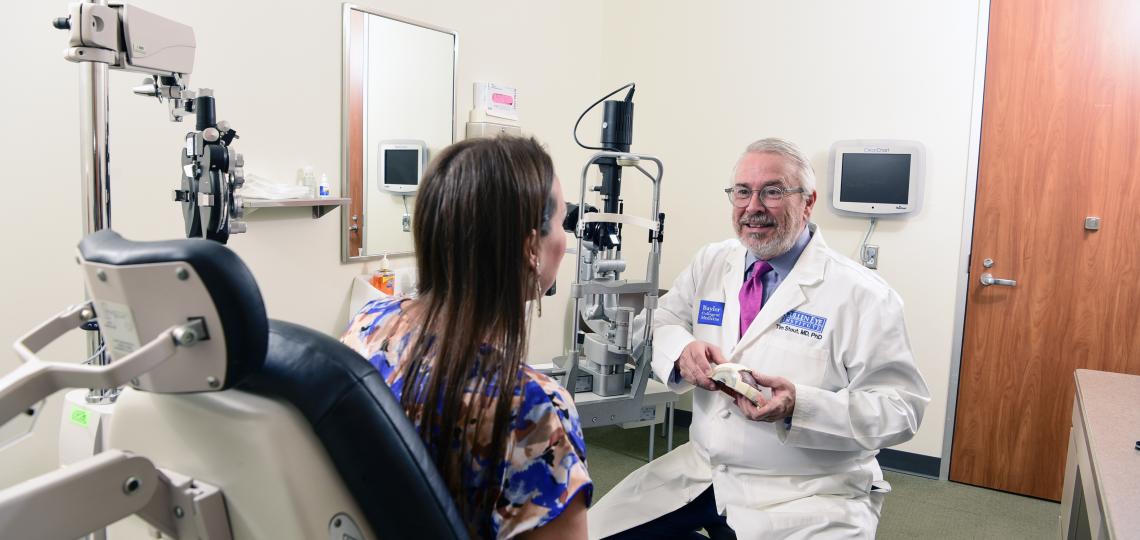Andalusia Eye Facility: Introducing Vision Take Care Of Neighborhood Wellness
Andalusia Eye Facility: Introducing Vision Take Care Of Neighborhood Wellness
Blog Article
Is Refractive Surgical Procedure Right for You? Factors to Think About for Better Eyecare
In the world of eye care, the decision to go through refractive surgical procedure is a weighty one that demands thoughtful factor to consider. As people seek clarity and flexibility from the restraints of corrective lenses, various aspects enter into play when determining the suitability of such a procedure. From the ins and outs of one's eye wellness to the intricacies of individual assumptions and day-to-day habits, each aspect holds significance in the wider landscape of refractive surgery candidacy. By reviewing these key elements with care and accuracy, a more clear course in the direction of educated decision-making arises.
Eye Health Analysis
When taking into consideration refractive surgical treatment, a detailed eye health evaluation is crucial to examine the viability of the treatment for every individual. cardiologist andalusia. This analysis includes a series of tests and evaluations performed by an eye treatment specialist to establish the total health and wellness of the eyes, the existence of any hidden conditions, and the security of the refractive error
Throughout the examination, various variables are taken into account, such as the patient's clinical background, existing eye prescription, corneal thickness, student size, and tear film top quality. These evaluations aid to determine any contraindications to refractive surgical procedure, such as corneal abnormalities, cataracts, or unattended eye infections. In addition, the evaluation assists to take care of patient expectations regarding the potential end results of the surgical treatment based on their distinct eye attributes.
Eventually, the eye wellness examination is vital in making certain the safety and effectiveness of refractive surgery, as it gives beneficial insights into the person's eye wellness status and helps establish one of the most appropriate treatment alternatives for accomplishing optimal visual end results. (andalusia pediatrics)
Way Of Life Assessment
A thorough lifestyle analysis is integral in figuring out the viability of refractive surgery for a person's visual modification needs. Way of life factors such as profession, hobbies, and everyday tasks play a vital role in the decision-making process concerning refractive surgical procedure.
Additionally, way of life practices such as sports involvement, outdoor activities, or even skin care regimens can affect the recovery procedure and general success of refractive surgical treatment. By carrying out an extensive lifestyle assessment, eye treatment specialists can tailor their suggestions and therapy strategies to fulfill the distinct demands of each person, eventually leading to enhanced aesthetic results and complete satisfaction.
Expectation Placement

Patients need to comprehend that while lots of individuals accomplish 20/20 vision or better complying with refractive surgical procedure, some may still call for glasses for specific tasks like reading or driving at night. Taking care of these expectations aids avoid frustration and dissatisfaction post-surgery, leading to a much more favorable total experience for the client.
Danger Evaluation

Variables that may boost the risk of issues consist of age, certain clinical conditions like autoimmune illness, unstable vision prescription, thin corneas, and impractical patient expectations. In addition, choosing a skilled and skilled cosmetic surgeon, complying with pre and post-operative treatment instructions carefully, and disclosing any appropriate clinical background can help reduce dangers.
To lessen the chance of complications, ophthalmologists carry out detailed pre-operative evaluations to identify any contraindications to surgical treatment. They likewise review the potential risks and benefits with patients during the assessment process. By engaging in open communication and shared decision-making, both the individual and the eye doctor can function together to figure out if refractive surgical treatment is the ideal option based upon specific danger profiles and preferred results.
Examination Value
Thinking about the important duty of educated decision-making in examining dangers and prospective problems in refractive surgical procedure, the appointment procedure holds considerable significance in directing patients in the direction of optimum results. During the consultation, the eye doctor examines the individual's eye health, refractive errors, and total viability for surgical treatment. This initial analysis is vital in identifying the most ideal procedure for each and every person, considering variables such as corneal thickness, pupil dimension, and more helpful hints existing eye conditions.
In addition, the examination acts as a possibility for clients to review their expectations, concerns, and any inquiries they might have concerning the surgical procedure. Clear communication in between the individual and the surgeon is vital to ensure realistic expectations and an extensive understanding of you can try these out the prospective threats and benefits entailed.
Furthermore, the consultation permits the surgeon to describe the various surgical choices readily available, their particular end results, and the post-operative treatment required. This detailed conversation empowers individuals to make educated decisions regarding their eye treatment, bring about better fulfillment and end results post-surgery.
Conclusion
In final thought, people taking into consideration refractive surgery ought to undertake a comprehensive eye health examination, examine their way of living habits, align their expectations with potential outcomes, examine the connected threats, and focus on appointments with eye treatment professionals. These factors play an essential function in figuring out the viability of refractive surgical treatment for every person, making sure ideal results and fulfillment with the treatment.
Individuals taking into consideration refractive surgical procedure commonly have high assumptions relating to the results, expecting perfect vision without the need for glasses or get in touch with lenses. While refractive surgical treatment can significantly improve vision and reduce dependence on aesthetic aids, it is essential for patients to understand that outcomes might vary based on individual variables such as the level of refractive error, corneal density, and general eye health and wellness.
By engaging in open interaction and shared decision-making, both the individual and the ophthalmologist can work with each other to figure out if refractive surgical treatment is the right choice based on private risk accounts and desired end results.
Thinking about the Recommended Reading vital role of notified decision-making in evaluating threats and prospective complications in refractive surgical procedure, the assessment procedure holds considerable importance in assisting patients in the direction of optimal end results. During the appointment, the ophthalmologist reviews the client's eye wellness, refractive errors, and general viability for surgical treatment.
Report this page